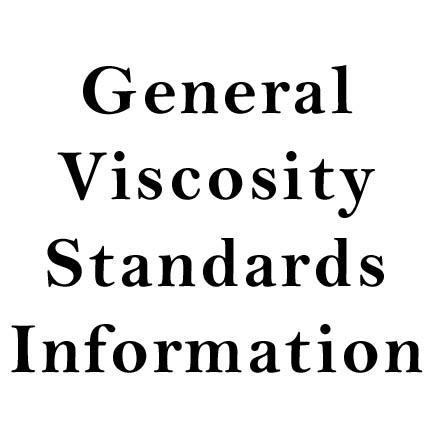Canada’s Instrumentation Leader Since 1946.


Most viscosity standards supplied by CANNON are hydrocarbon oils. Most of the lower viscosity standards consist of mineral oil base stocks, while others are made from polyalphaolefins. The higher viscosity standards are polybutenes. In general, these standards are Newtonian liquids (that is, the viscosity is independent of the shear stress or shear rate). Some deviation […]
Most viscosity standards supplied by CANNON are hydrocarbon oils. Most of the lower viscosity standards consist of mineral oil base stocks, while others are made from polyalphaolefins. The higher viscosity standards are polybutenes. In general, these standards are Newtonian liquids (that is, the viscosity is independent of the shear stress or shear rate). Some deviation from true Newtonian response may occur when measurements are made with high viscosity standards at high shear rates. Frequently the heat developed at high rates of shear can cause the standard to appear non-Newtonian when in fact the viscosity has been lowered by “viscous heating." In addition to hydrocarbon standards, CANNON offers silicone standards for calibrating rotational viscometers. Note: Silicone viscosity standards should NOT be used for other types of viscometers. Customers can use CANNON hydrocarbon standards for calibrating their own glass capillary viscometers using the ASTM D 445 and ASTM D 446 Methods.
Custom Blends
If you need a standard at a temperature or viscosity not available in a stock standard, please call CANNON to discuss the blending of a custom standard to your temperature and viscosity specifications. Because of the large number of factors involved, we must quote individually for each custom standard. To help us serve you better, when ordering custom standards please state the acceptable viscosity (or kinematic viscosity) range and temperature(s) required. If you also require density data, please state this when ordering. Custom standards are subjected to the same stringent quality controls as the stock standards listed in our catalog.
Container Sizes for CANNON Viscosity Standards
CANNON supplies viscosity standards in a variety of container sizes (see Conversion Table below). Most standards are also available in 4-oz containers. The default container size for most standards is the 500 mL bottle. When ordering a non-default size, use the chart to determine the catalog number suffix (EXAMPLE: the catalog # for the N35 general purpose standard in a 1 Liter container would be 9727-C37.032).
The default size container for flash point standards is 200 mL. The N2700000 (SP) standard is supplied in 55 mL bottles. The N.4, N.8 and N1.0 standards are supplied in .5L bottles.
|
Unit Conversions and Container Sizes |
|
||
|
Metric Units
|
U.S. Customary Units*
|
Catalog # Suffix
|
|
|
120 mL
|
4 oz. Size
|
.004
|
|
|
500 mL
|
Pint Size
|
.016
|
|
|
1 Liter
|
Quart Size
|
.032
|
|
|
4 Liters
|
Gallon Size
|
.128
|
|
|
20 Liters
|
5-Gallon Size
|
.5
|
|
|
* (conversions are approximate)
|
|||
A Note About Viscosity Values
The tables on the following pages provide nominal values for viscosity standards supplied by CANNON Instrument Company. Please note that actual values will vary slightly from lot to lot; the amount of variation is dependent on the type of standards. Formulations are subject to change at any time. If your application requires materials in close conformity with published nominal values, please contact CANNON Instrument Company to obtain the viscosity values associated with the current formulation.
CANNON Instrument Company has received ISO/IEC 17025 accreditation for technical competence in the field of calibration through A2LA. The accreditation covers the calibration of glass capillary viscometers, the determination of kinematic and dynamic viscosity (including that of viscosity standards and the viscosity certification of customer samples), and the provision of calibration services for viscometers and kinematic viscosity thermometers in accordance with ISO/IEC 17025.
Copyright - 2026 - Hoskin Scientific